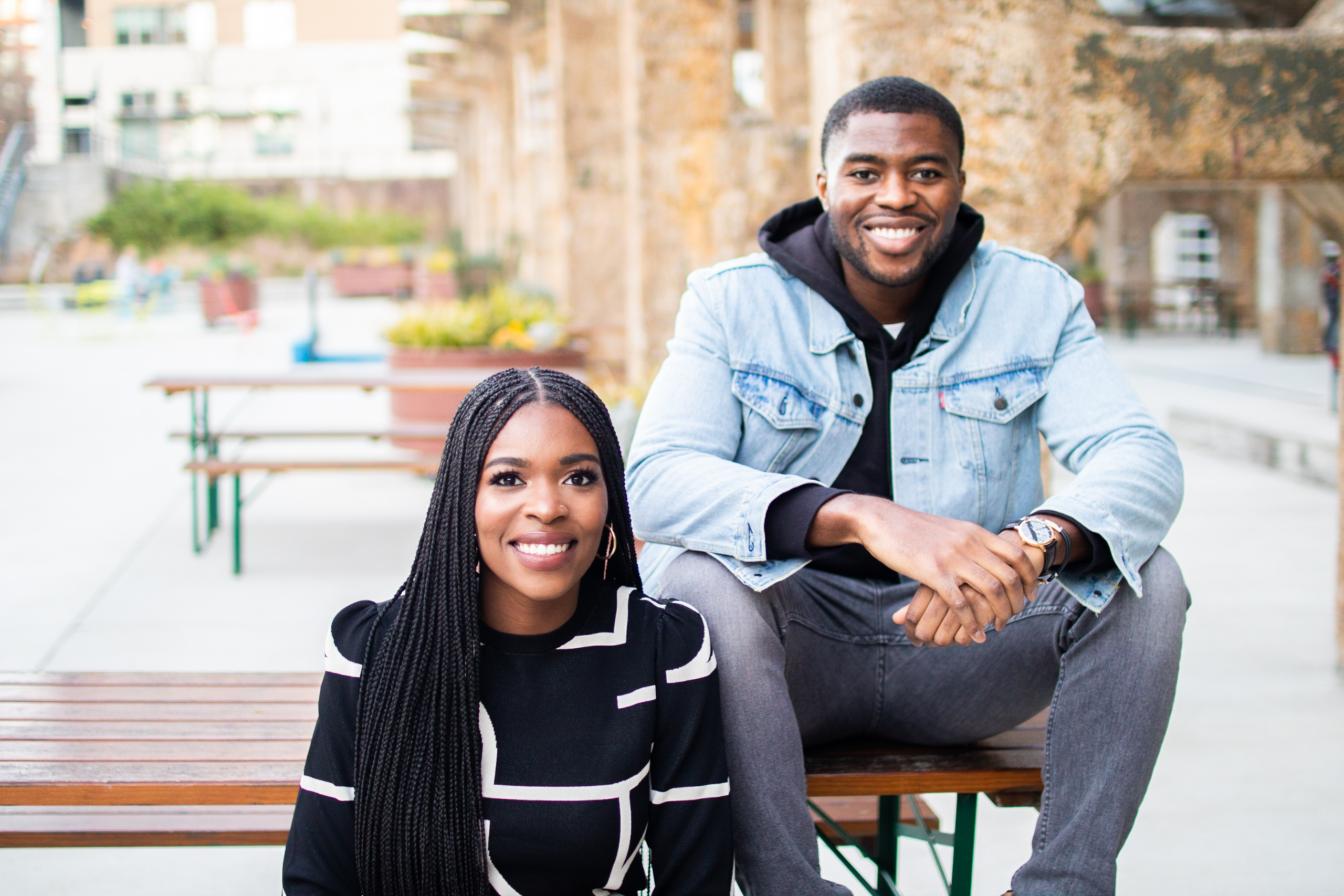From determining if you meet qualifications, sending applications into what you've ultimately deduced may be a cyber black hole to negotiating for a higher starting salary, securing a job can be a struggle like no other.
Once you add in casual discriminations in the hiring procedure and the possibility of encountering workplace microaggressions, the task is far easier said than done. Two siblings have set out to change the way people of color navigate through the job hunting process, and it could have a serious impact on how companies assess their own hiring practices.
Co-founded in June 2020 by Toby and Dumebi Egbuna, Chezie is a site that seeks to offer transparency into the experiences of people of color at workplaces so underrepresented individuals can land at a company that values them. They're calling it the "Glassdoor for minorities."
"We launched Chezie because as first-generation Nigerian immigrants, we know how important it is for diverse students and professionals to be in a workplace where they feel they belong," Dumebi explained. "We want to provide job seekers with the insights and network they need to make more informed career decisions and ultimately find careers they love."
One aspect that distinguishes Chezie from competing sites is when applicants visit other pages, company profiles are flooded with negative reviews. A quick peek through portfolios on Chezie reveal constructive feedback, with users providing specific examples of their work experiences that they think could be revised.
With Chezie's rivals, candidates might find everything from open positions to more specific factors like median salary and perks, but they're transactional by design. So, once a potential employee sifts through the reviews, there's no longer an incentive that encourages them to return. With Chezie, Toby and Dumebi want to facilitate a community that supports each other now and in the future.
Among the standout tendencies the partners shared from user feedback, Toby and Dumebi found that people love flexibility and Black employees are speaking up for what they want.
"People are less hesitant to talk about transitions they want to make or new skills they want to develop, and companies must be ready to accommodate these requests if they want to retain the diverse talent they have," Dumebi said.
Furthermore — and perhaps more importantly — the Egbuna siblings point out, is that workers don't leave jobs, they leave managers.
"The biggest complaint people have about their managers is that they aren’t accustomed to managing people from underrepresented backgrounds, so they say or do things that are offensive without knowing it," Dumebi continued. "Whether it be making assumptions about people’s sexuality, neglecting to give Black employees time and space after a police officer kills an unarmed Black person, or not giving a Woman the opportunity to speak during a presentation, managers must be cognizant of how their actions affect people they manage differently, and they need to act accordingly."
Although they don't have data on the number of people that have found employment via Chezie, Toby and Dumebi say 1,200 community members have registered on the site.
Chezie's advancement captured the attention of one of the largest media entities, too. On April 19, Toby was announced as a member of the 2021 Class of NPR’s "How I Built This" Fellows.
"As first-time founders, we don't know what we don't know, so having access to a group of people that have been where we are and succeeded is invaluable," Toby said about the honor. "I'm also really looking forward to connecting with the other fellows and working through this entrepreneurial journey together."
As they approach the one year mark, Toby and Dumebi's plans include facilitating human contact between job seekers and employers. Chezie's new Community function will also establish more genuine interactions between members, but also help companies develop relationships with prospective talent.
"We aspire to be the premier trusted brand in diversity, equity and inclusion (DEI)," Dumebi said. "The same way you think of Salesforce when you think sales, or Workday when you think HR, we want people to think of Chezie when they think DEI. This is an industry that’s growing quickly, but it’s one that is also largely under-resourced and under-served. Our vision is to create the most inclusive workplaces on earth, and we’re confident that we can do that on the foundation of a strong community of diverse students and professionals."
